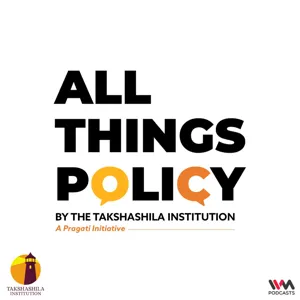Podcast Summary
Significance of March for Medical Students and Doctor Shortage: The US could face a shortage of up to 120,000 physicians within the next decade, primarily affecting primary care and underserved communities, leading to overbooked schedules and insufficient patient care.
March is a significant month for medical students as they find out where they'll complete their residency training, but it's also crucial for the rest of us as the country faces a growing shortage of doctors. The Association of American Medical Colleges estimates that if current trends continue, the U.S. could be short as many as 120,000 physicians within the next decade. This shortage primarily affects the availability of primary care doctors, leading to overbooked schedules and insufficient time spent with patients. The consequences of this shortage can be particularly challenging in underserved communities, where the demand for medical care is highest. It's essential to address this issue to ensure that everyone has access to adequate healthcare services.
Policymakers' Response to Perceived Cost Issues Contributed to Doctor Shortage: Policymakers' belief in physician-induced demand led to medical schools reducing enrollment for over two decades, worsening the doctor shortage. The residency training bottleneck also contributes to the issue.
The current doctor shortage in the United States, particularly in areas like primary care and specialties such as OBGYNs, can be traced back to the 1970s and 1980s when policymakers believed that "physician-induced demand" was causing unnecessary healthcare spending. In response, medical schools voluntarily reduced enrollment for over two decades, exacerbating the issue as the population continued to grow. This mistake has left us with a significant shortage of doctors, even as medical schools are now trying to increase enrollment. However, this issue is not just about medical students; there is also a bottleneck in residency training, which is the critical next step after medical school. This complex history highlights how the medical profession's response to perceived cost issues may have inadvertently contributed to the current doctor shortage.
Outdated funding system for US residency programs: The current funding model for US residency programs is unable to meet the demand for trained physicians due to demographic changes and an increasing number of medical school graduates.
Residency programs in the United States, which are crucial for independent medical practice, are primarily funded by Medicare. However, this funding system, which has been in place since the late 1990s, is outdated and unable to keep up with the country's changing demographics and increasing number of medical school graduates. As a result, hospitals in growing cities struggle to secure enough residents, and many international medical graduates face difficulties entering the residency pipeline. For instance, Hannah Sawney, a US citizen who graduated from a UK medical school, applied to over 300 to 400 programs but went unmatched for three years. This issue highlights the need for an updated residency funding model that can adapt to the current landscape and ensure an adequate supply of trained physicians.
U.S. Residency System Fails Some Foreign Medical Graduates: The U.S. residency system is hindering qualified foreign medical graduates from practicing medicine, contributing to the doctor shortage. Reforms to the funding scheme and alternative career paths are needed.
The current residency application system in the United States is failing some medical graduates, like Hannah, who hold foreign degrees, despite the ongoing doctor shortage. Hannah faced numerous rejections despite her qualifications and experience, leading her to consider alternative career paths. Experts suggest overhauling the residency funding scheme as a potential solution, but progress has been slow. In the meantime, some states are allowing limited medical practice for those who couldn't secure residencies, and Hannah has been doing this for the past couple of years. However, she has recently pivoted her career towards medical research. This situation highlights the need for systemic change, and Hannah's experience serves as a reminder that the system can sometimes fail those who are eager to contribute to the medical field.
Investing in discounted real estate assets with Fundrise: Consider investing in Fundrise for real estate opportunities at discounted prices, but be sure to read the prospectus for risks, charges, and expenses. Meanwhile, Saatva luxury mattresses offer high-quality sleep solutions at more affordable prices.
High interest rates present an opportunity to invest in real estate assets at discounted prices. The Fundrise flagship fund, with a $1 billion portfolio, is planning to expand and is open for investment. Real estate investment through Fundrise comes with risks, charges, and expenses, so it's crucial to read the prospectus before investing. Meanwhile, in the world of sleep solutions, Saatva luxury mattresses offer high-end quality at more affordable prices. Sold online, these mattresses provide the same elegance as expensive brands but at about half the cost. So, whether you're looking to invest in real estate or upgrade your sleeping experience, consider these opportunities. Remember, careful consideration and research are essential before making any investment or purchase.





